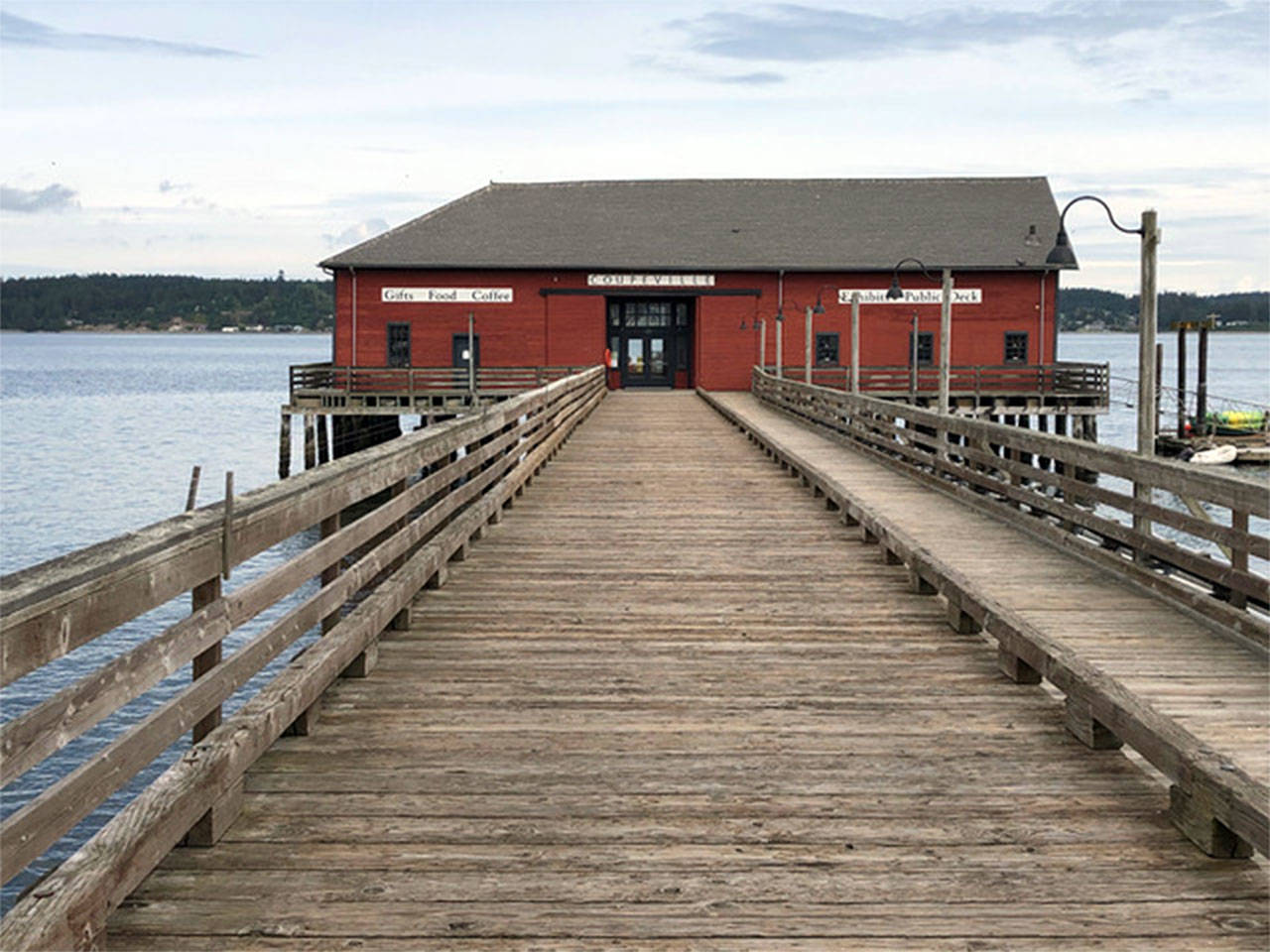Eerie is an onomatopoeia – a word that sounds like what it means. I was reminded of that tidbit I learned in my high school English class as I took a stroll through historic downtown Coup-eville on a gorgeous mid-May morning this week. The sun was shining, Penn Cove was shimmering, Mount Baker sparkled in the distance. Just the people and cars were missing.
It was lovely, peaceful and quiet, but it also had an ominous element. Overhead, the shriek of a hawk – about the only noise to be heard – sounded eerily like the word “eerie.” When I got home, I looked it up. Eerie derives from Old English meaning fearfulness verging on cowardice.
And I realized that, even though it felt great to breathe the fresh air and enjoy our quaint town on this beautiful Rock without parking six blocks away and bumping into big groups of gawkers from America who always seem intent on moving here, I was also feeling a worrisome anxiety.
Come on, I counseled myself. Put on your Big Boy pants. This is a temporary thing, not some apocalyptic nightmare. This virus lockdown will be over in Phase One or Two or Three or Four; but I do wish I could remember what day it is.
To be sure, not everywhere on our Rock is this deserted and quiet. In Burger ‘n Friesville, aka Oak Harbor, the lines for drive-through fast food seem endless, social distance seems about where it’s always been and some citizens clearly think masks are unconstitutional. In Langley, things may not be bustling, but the town does want you to come take a stroll, enjoy the Boy and Dog statue and have a nice quiet day in the Village by the Sea. But please do wear a mask; it’s part of your responsibility to save humanity.
On my walkabout in deserted Coupeville, I did encounter three families with toddlers in strollers. We nodded at each other at a safe distance, and one father joked they had all become “squirrelly and just had get out of the house.” One older gentleman waited patiently outside Toby’s Tavern for his takeout burger to be brought out. An older woman looked pained as she peered in the window of Little Red Hen bakery to see no bread and no humans.
I parked my car in the diagonal spaces outside the Coupeville Chamber of Commerce. I smiled, since that is usually impossible on any day at any time. One other empty, lonely car was socially distanced three spaces away.
I walked to the Coupeville Wharf, that historic 1908 structure that has been jammed with people for 112 years. I was the only soul walking the planks that morning. But it had a moment-in-time elegance about it. I had a chance to study its classic lines as the seagulls swarmed above the roof. And as I studied its sheer emptiness, I felt some some reassurance, knowing that more than $1 million in grants will soon launch the repairs needed to give the Wharf another 112 years or more.
I strolled up Front Street past the shuttered Back to the Beach gift shop with an ominous “Closed Until Further Notice” sign taped to the front door. The Touch of Dutch shop’s door was open but with a chain across it; it’s open for takeout and curbside pick up only. Takeout and curbside. How quickly those words had filled our vocabulary.
There were a few cars scattered on Front Street but parking was more available than it’s been in at least 50 years. It reminded me of the first time I visited Coupeville, in 1966.
Several of my UW buddies and I came to Whidbey for a day trip. A hippie selling tie-died T-shirts near Ken’s Korner suggested we drive up the island to “this really cool ghost town called Coupeville.” So we did. It was deserted. A few locals were dining or buying some household items. We appeared to be the only out-of-towners. We strolled down the nearly empty Wharf. We ate a burger at Toby’s. Then we went home.
As a reflect on that journey 54 years ago and the one I made this week, I feel better about the present unpleasantness. Our Rock’s here to stay and hopefully so are we. Let’s enjoy the adventure, however we may.
• Columnist Harry Anderson is a former journalist with the Los Angeles Times. He currently lives in Coupeville.



